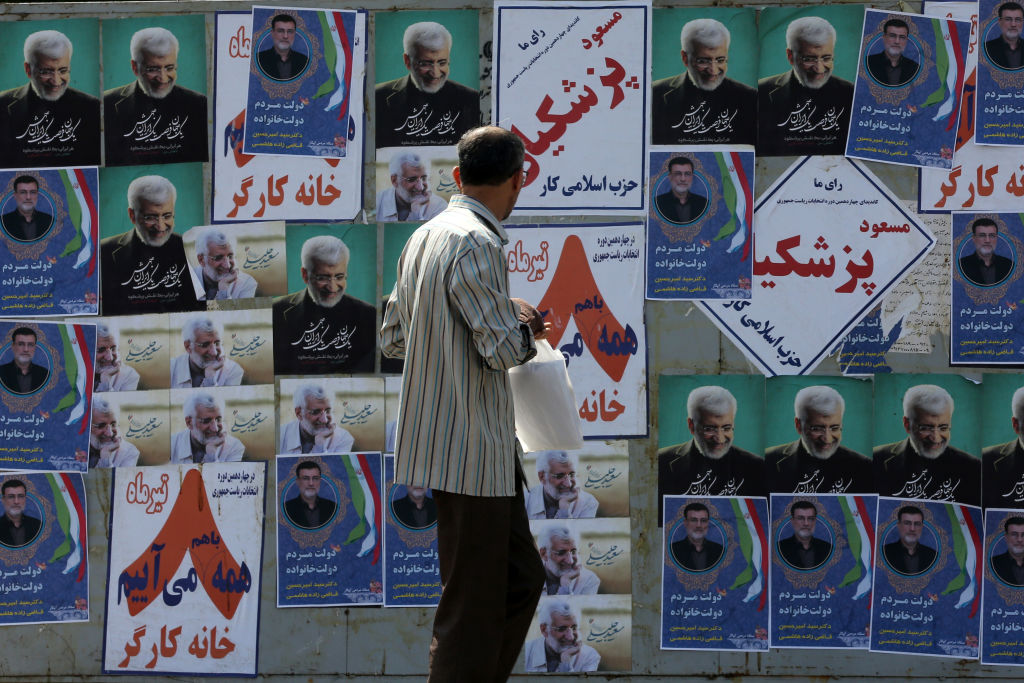Mon Jan 6, 2025 - 6:00 am ESTSat Jan 4, 2025 - 1:38 pm EST
(LifeSiteNews) — A recent case from the UK’s High Court presents a bewildering mess of contradictions. According to The Times:
A British sharia council was given credibility by the High Court when a judge used one of its fatwas to decide a case. The Islamic Council, founded by the hardline preacher Haitham al-Haddad, issued a religious ruling forbidding a health trust from allowing a brain-damaged child to die. Secular campaigners said using fatwas in civil courts undermined liberal democracy.
The story is getting a lot of attention as American influencers seem to have discovered the horrifying story of the Rotherham rape gangs in the UK for the first time. The grotesque details of the systematic rape of thousands of white British girls by primarily Pakistani gangs is sparking intense outrage despite the scandal being several years old and reigniting the debates about multiculturalism and Islamic immigration that always smolder just beneath the surface of society.
Thus, the cultural context of this case is fascinating. Sharia courts — which are made up of panels of paid Islamic scholars who issue religious rulings on a variety of cases — have become a growing phenomenon in the UK. According to a recent investigation by The Times, Britain is the Western capital for “sharia councils” and has more than 100 of them. The Islamic Council, the sharia “court” cited by the High Court, handles up to 900 cases each year and “has expanded into Germany and North America.” From The Times:
Haddad’s sharia council issued a fatwa which was used by an English judge in a life-or-death decision involving a sick child. Tafida Raqeeb, then five, was suffering from brain damage with no chance of recovery and was facing withdrawal of treatment by Barts Health NHS Trust in London which would have led to her death.
Her Bangladeshi parents obtained a fatwa from the Islamic Council of Europe, as it was then called, in 2019 that it was “absolutely impermissible for the parents, or anyone else, to give consent for the removal of the life-supporting machine from their child … This is seen as a great sin that has a multitude of grave consequences for them (in) this life and the hereafter.”
In response, Mr. Justice Macdonald stated that he accepted the fatwa, as prolonging treatment for the girl “permits Tafida to remain alive in accordance with the tenets of the religion in which she was being raised and for which she had begun to demonstrate a basic affinity.” The child was then flown to a Vatican-owned hospital in Italy for treatment. Haddad’s sharia court was triumphant, calling the judge’s acceptance of their fatwa (or ruling) a “landmark case” for the Islamic Council on an issue of “deep ethical and religious concern.”
The Islamic Council noted that “The fatwa issued was based on the sanctity of life, a fundamental principle in Islam. The advice provided sought to protect the child’s life while respecting the family’s wishes, consistent with Islamic ethics and compassion.” This has predictably bothered atheist activists such as Stephen Evans of the National Secular Society, who told the Times that “Fatwas issued by Islamic councils must not hold any authority in English courts. Allowing harmful ideologies to gain legitimacy in our legal framework would fundamentally compromise secular law and the liberal democratic values upon which UK society is built.”
Other critics pointed to the misogyny inherent to sharia courts; feminist writer Rahila Gupta asked whether the High Court’s use of the fatwa constituted an undue respect for religion. “Would the case of a secular family similarly arguing for the extension of a child’s life, be weaker?” she asked. It is a good question — although the problem is not that the Islamic view on the sanctity of life was taken into account but because the sanctity of life is so frequently ignored by the UK courts more generally. The parents of infant girl Indi Gregory, for example, were not permitted to take her to Vatican City’s hospital for treatment despite the support of Italian Prime Minister Giorgia Melonia. She died last November.
In 2018, in a case that attracted international attention, the parents of Alfie Evans were also blocked from taking their little boy to Italy for offered treatment; they were even denied the right to take him home to die after he stunned doctors by surviving for four days without a ventilator. He died held captive in Alder Hey Children’s Hospital on April 28, 2018. The year before, 11-month-old Charlie Gard was blocked from going to the United States for therapy trial that his parents had fundraised for; doctors would not permit him to leave. He died on July 28, 2017. In another case, 12-year-old Archie Battersbee died after UK courts denied his parents the right to take him for treatment offered by doctors in both Italy and Japan.
This makes the case of Tafida Raqeeb stand out. Why did her parents succeed in taking her out of the country where so many others failed? It appears that the fatwa from the sharia court had a lot to do with that. I’m happy that her parents succeeded, but the double standard being exposed here is justifiably concerning. Unlike the atheists and immigration critics sounding the alarm over “what this means,” however, I would say that devout belief in the sanctity of life should be carefully considered in all cases, not ignored in most cases but treated with respect when it comes from an Islamic “court.”
This story lends itself to a host of possible “takes”: The Islamization of the West; the prioritizing of foreign religions over Christianity; the battle to defend the sanctity of life in a secular society; the fact that Muslim newcomers often hold views on moral issues that hew closer to traditional Christian norms than liberal ones. Ultimately, this single story contains many of our post-Christian era’s most potent contradictions.

Jonathon’s writings have been translated into more than six languages and in addition to LifeSiteNews, has been published in the National Post, National Review, First Things, The Federalist, The American Conservative, The Stream, the Jewish Independent, the Hamilton Spectator, Reformed Perspective Magazine, and LifeNews, among others. He is a contributing editor to The European Conservative.
His insights have been featured on CTV, Global News, and the CBC, as well as over twenty radio stations. He regularly speaks on a variety of social issues at universities, high schools, churches, and other functions in Canada, the United States, and Europe.
He is the author of The Culture War, Seeing is Believing: Why Our Culture Must Face the Victims of Abortion, Patriots: The Untold Story of Ireland’s Pro-Life Movement, Prairie Lion: The Life and Times of Ted Byfield, and co-author of A Guide to Discussing Assisted Suicide with Blaise Alleyne.
Jonathon serves as the communications director for the Canadian Centre for Bio-Ethical Reform.
Your support makes stories like this possible!
LifeSiteNews is completely donor supported, allowing us to report on what truly is happening in the world, free of charge and uncensored. A donation to LifeSite will ensure millions around the world can continue to come to our site to find the truth people are so desperately searching for on life, faith, family and freedom.

 By LifeSiteNews (Politics) | Created at 2025-01-06 11:26:08 | Updated at 2025-01-07 21:36:58
1 day ago
By LifeSiteNews (Politics) | Created at 2025-01-06 11:26:08 | Updated at 2025-01-07 21:36:58
1 day ago







